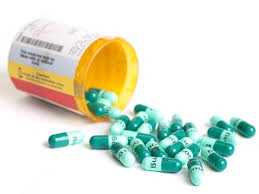Your doctor prescribes antibiotics to help clear infections like pneumonia, bronchitis, and urinary tract infections caused by bacteria. These drugs work by killing the bacteria, but some of them also work by preventing the bacteria from multiplying and growing. Antibiotics are divided into many classes and groups. While they are effective, they all have some side effects. Certain side effects of antibiotics are more common. Let's find out about those side effects and some ways to manage them better.

What Are the Side Effects Antibiotics Can Cause?
You May Notice Digestive Problems
Studies show that 1 in 10 people who take antibiotics end up developing gastrointestinal problems. These include vomiting, nausea, indigestion, diarrhea, and bloating. You may experience a loss of appetite and have abdominal pain as well. Usually, these side effects are quite mild and go away without any further treatment. It is important to talk to your doctor if these symptoms persist or pain becomes worse over time.
Your Immune System May Suffer
As these antibiotics can affect the balance of good and bad bacteria in the gut, you may end up having a weakened immune system after completing a course of antibiotics as one of the side effects of antibiotics. There are pathogenic microbes in your gut along with good bacteria, and that balance is vital for your overall health. Antibiotics can cause an imbalance and result in lowered immunity. This can make you more susceptible to infections.
You May Develop a Metabolic Disorder
Research shows that an imbalance in good bacteria and pathogenic microbes in the gut can change the way your body deals with inflammation. This can lead to inflammatory and autoimmune disorders. That is why many experts believe that there is a connection between antibiotics and metabolic disorders, such as diabetes, obesity, and metabolic syndrome. Due to the excessive use of antibiotics, you may develop chronic low-grade inflammation that leads to excess fat accumulation. Eventually, this obesity could lead to full-blown metabolic syndrome and increase your risk of fatty liver disease, type-2 diabetes, and cardiovascular disease.
You May Get Diabetes
Excessive use of antibiotics is also linked to the development of type-1 diabetes. Studies show that a single course of antibiotics may not play a role in the development of this insulin-dependent diabetes, you may be at an increased risk though after 2-5 such courses. This is especially true in case of antibiotics, such as quinolones, penicillin, cephalosporin, and macrolides.
You May Develop Vaginal Yeast Infections
Again, antibiotics can affect the balance of gut flora and cause all sorts of problems, including vaginal yeast infections in women. This imbalance allows candida albicans and other fungal species to thrive and outnumber good bacteria in the vagina. This is probably the reason why many healthcare providers ask you to eat yogurt with live cultures or take Lactobacillus acidophilus tablets while you are taking antibiotics.
You May Develop Mouth Sores and Ulcers
Just like vaginal yeast infections, an imbalance in gut flora can also increase your risk of developing mouth sores, blisters, and ulcers. Oral thrush and candidiasis are other common side effects of antibiotics. Some medicines like amoxicillin are usually responsible for causing mouth ulcers or blisters as side effects.
You May Have Tooth Discoloration
This is especially true when you use beta-lactam and tetracycline antibiotics. The discoloration may be permanent when you give tetracycline to children under 8. You may want to avoid these antibiotics during pregnancy because they can also affect your baby in the womb, especially during the second half of your pregnancy. For adults, the discoloration is usually superficial and reversible.
You May Develop Allergies
It is possible to develop an allergic reaction to an antibiotic. In fact, 1 in 15 people taking antibiotics develop allergic reactions. These reactions are more common to antibiotics like penicillin and cephalosporin. In case of an allergic reaction, you may experience raised skin rash with hives. Coughing and wheezing are also possible. Some people may also feel tightness in the chest or throat. There may also be a sudden dip in your blood pressure. Other rare issues include confusion, rapid heartbeat, lightheadedness, and loss of consciousness.
You May Develop Antibiotic Resistance
Excessive use of antibiotics may lead to a condition called antibiotic resistance, which means that you no longer notice any results from taking the same group of antibiotics. It also means that the disease-causing bacteria have developed a resistance to the type of antibiotic you are taking. It makes antibiotics less effective and even leads to long-term disability.
Should You Stop Using Antibiotics If Suffering a Side Effect?
You know there can be many side effects of antibiotics, but that does not mean you should stop taking an antibiotic immediately after you experience any side effect. It is important to talk to your doctor first and determine the best way forward. Your doctor may decide to keep you on the same antibiotic but give you something else to manage the side effect. They may also adjust the dose or switch to a different antibiotic.
You should never stop your antibiotic treatment without consulting your doctor. It is important to complete your antibiotic course or you may develop antibiotic resistance. This can make the infection become worse and not respond to the same antibiotic. Therefore, you should inform your doctor about any side effects you are experiencing and then follow their advice.
View All Comments /Add Comment